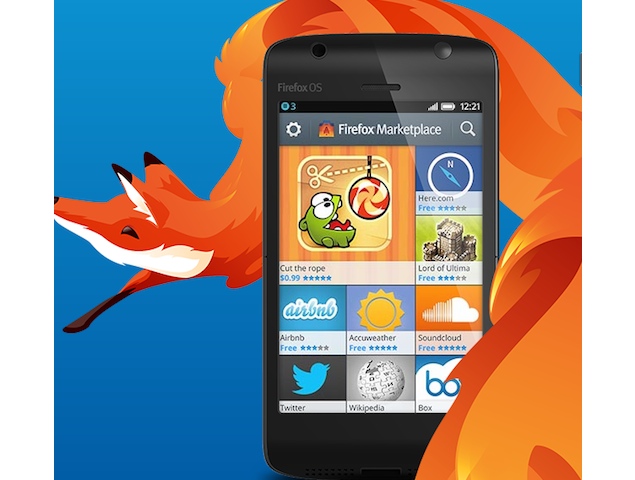- Home
- Internet
- Internet News
- Mozilla announces new web payments system
Mozilla announces new web payments system
By Anupam Saxena | Updated: 8 April 2013 19:26 IST

Advertisement
Mozilla has announced a new web payments system, essentially a common web API, to make payments easy and secure on connected devices. In line with the announcement, Mozilla will introduce navigator.mozPay(), a JavaScript API which, according to the group, is inspired by Google Wallet's in-app purchase API except that it's been modified for things like multiple payment providers and carrier billing. It will be first introduced in the Firefox OS. After that, Mozilla plans to add navigator.mozPay() to Firefox for Android and desktop Firefox.
Announcing the move on its blog, Mozilla's Kumar McMillian elaborated that Mozilla's main goal with navigator.mozPay() was to give users and merchants choice, security, and an easy to use payments system.
The system would work in a simple manner and whenever a web app invokes the navigator.mozPay() API in Firefox OS, the device would show a secure window with a 'concise UI' following which the user is authenticated and the payment is charged to the user's mobile carrier bill or credit card. After completion of the transaction, the app delivers the product and repeat purchases are swift and easy.
The payment starts and finishes in the client but further processing and notifications happen server side, so the payment side doesn't know about the product that the user has purchased.
McMillian informed developers that Navigator.mozPay() is an experimental API that might change drastically or become unprefixed without notice. The aim, he said, is to process live payments first on the Firefox OS phones and then evolve quickly from real world usage.
The Firefox OS would bring mobile web content directly to users with web apps, so a broader payment system makes sense. The move potentially paves the way for increased popularity of ad-free content on the web, with paid content becoming an alternative as users get the ability to pay for content easily and in a secure manner.
Google used to have a service by the name of One Pass that allowed web properties to offer paid content. However, it was shut down, last year.
Announcing the move on its blog, Mozilla's Kumar McMillian elaborated that Mozilla's main goal with navigator.mozPay() was to give users and merchants choice, security, and an easy to use payments system.
The system would work in a simple manner and whenever a web app invokes the navigator.mozPay() API in Firefox OS, the device would show a secure window with a 'concise UI' following which the user is authenticated and the payment is charged to the user's mobile carrier bill or credit card. After completion of the transaction, the app delivers the product and repeat purchases are swift and easy.
The payment starts and finishes in the client but further processing and notifications happen server side, so the payment side doesn't know about the product that the user has purchased.
McMillian informed developers that Navigator.mozPay() is an experimental API that might change drastically or become unprefixed without notice. The aim, he said, is to process live payments first on the Firefox OS phones and then evolve quickly from real world usage.
The Firefox OS would bring mobile web content directly to users with web apps, so a broader payment system makes sense. The move potentially paves the way for increased popularity of ad-free content on the web, with paid content becoming an alternative as users get the ability to pay for content easily and in a secure manner.
Google used to have a service by the name of One Pass that allowed web properties to offer paid content. However, it was shut down, last year.
Comments
For the latest tech news and reviews, follow Gadgets 360 on X, Facebook, WhatsApp, Threads and Google News. For the latest videos on gadgets and tech, subscribe to our YouTube channel. If you want to know everything about top influencers, follow our in-house Who'sThat360 on Instagram and YouTube.
Related Stories
Popular on Gadgets
- Samsung Galaxy Unpacked 2025
- ChatGPT
- Redmi Note 14 Pro+
- iPhone 16
- Apple Vision Pro
- Oneplus 12
- OnePlus Nord CE 3 Lite 5G
- iPhone 13
- Xiaomi 14 Pro
- Oppo Find N3
- Tecno Spark Go (2023)
- Realme V30
- Best Phones Under 25000
- Samsung Galaxy S24 Series
- Cryptocurrency
- iQoo 12
- Samsung Galaxy S24 Ultra
- Giottus
- Samsung Galaxy Z Flip 5
- Apple 'Scary Fast'
- Housefull 5
- GoPro Hero 12 Black Review
- Invincible Season 2
- JioGlass
- HD Ready TV
- Laptop Under 50000
- Smartwatch Under 10000
- Latest Mobile Phones
- Compare Phones
Latest Gadgets
- Redmi Turbo 4
- Vivo Y200+
- Lava Yuva 2 5G
- OnePlus Ace 5
- OnePlus Ace 5 Pro
- Oppo A5 Pro 5G
- Vivo Y29 5G
- Honor Magic 7 RSR Porsche Design
- Asus Zenbook S 14
- MacBook Pro 16-inch (M4 Max, 2024)
- Honor Pad X9 Pro
- Honor Pad V9
- boAt Enigma Gem
- boAt Enigma Daze
- Sony 65 Inches Ultra HD (4K) LED Smart TV (KD-65X74L)
- TCL 55 Inches Ultra HD (4K) LED Smart TV (55C61B)
- Sony PlayStation 5 Pro
- Sony PlayStation 5 Slim Digital Edition
- Blue Star 1.5 Ton 3 Star Inverter Split AC (IC318DNUHC)
- Blue Star 1.5 Ton 3 Star Inverter Split AC (IA318VKU)
© Copyright Red Pixels Ventures Limited 2025. All rights reserved.

















